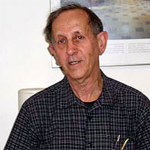
695 Park Ave
New York, NY 10065
Hunter undergraduates find research experience particularly valuable if they intend to enter graduate school or work in a laboratory setting. The CBMM summer research program provides opportunities for undergraduates to conduct research in CBMM labs at MIT and Harvard. Hunter faculty affiliated with CBMM also offer opportunities for summer study and research during both the academic year and the summer. For more information, contact the individual faculty listed below.
The Computer Science Department at Hunter has faculty with interdisciplinary interests in vision, reasoning, linguistics and natural language processing, artificial intelligence, and machine learning. Computer Science offers a supervised research experience under the guidance of faculty with strong research programs in CBMM-related areas. The Psychology Department has faculty with interests in cognitive psychology, behavioral neuroscience, linguistics and language acquisition, and neuroethology. Doctoral work in computer science, linguistics, and behavioral and cognitive neuroscience is offered through the CUNY Graduate Center, and can be integrated with doctoral work in Molecular, Developmental and Systems Neuroscience offered by the Biology Doctoral Program.
To prepare for graduate work in the science of intelligence, students should develop background in a range of disciplines that include computer science, linguistics, neuroscience, cognitive science, and mathematics. A number of majors and concentrations at Hunter incorporate relevant interdisciplinary training, including Computer Science, Biology, and Psychology and Concentrations in Neuroscience within the Psychology and Biology departments. Hunter students interested in studying the science of intelligence should contact one of the CBMM-affiliated faculty below, as early in their academic careers as possible.




